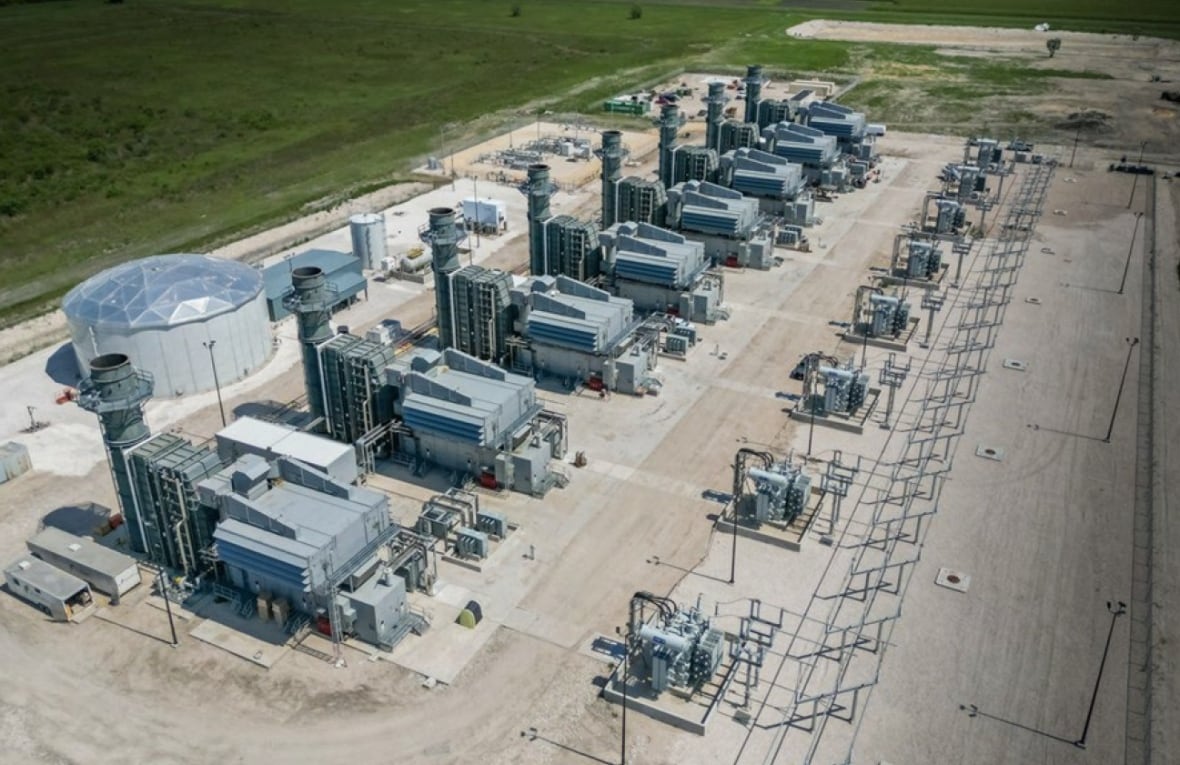Big emissions estimate a worst-case scenario, gas plant builder says
U.S. company that will build Tantramar plant endorses N.B. Power’s math showing net greenhouse gas reductions
The U.S. company hired to build a natural gas plant in southeast New Brunswick says an annual greenhouse gas emissions estimate of 900,000 tonnes per year is a worst-case scenario that is unlikely to come to pass.
That figure, contained in the company's environmental impact assessment submission, is nine times higher than what N.B. Power said when the plant was first announced last December.
But a spokesperson for ProEnergy said the number comes from a "stressed case" scenario in which the plant would be "responding to a major upheaval in the grid," operating at full capacity for almost one-third of the year.
"In our experience, this type of operation would not happen over a long duration period as market conditions and grid operations would respond appropriately," spokesperson Chris Evans said in an emailed statement ot CBC News.
Evans said the estimate of 100,000 tonnes from N.B. Power is "the expected, typical operation of a peaking plant" like the one it plans to build.
Green MLA Megan Mitton, whose Tantramar riding is where the plant will be built, called the difference between the estimates "an astounding gap."
Following ProEnergy's explanation, Mitton said she still questioned the need for a new natural gas plant to generate electricity.

"This supposed transition fuel — this transition is taking way too long," she said.
"It's not actually a transition. It's keeping us locked in with this type of infrastructure. We shouldn't be building new fossil fuel infrastructure."
N.B. Power said it will buy electricity from the plant to provide backup power to the utility's growing use of renewable wind and solar energy.
Because those sources aren't constant, the grid requires a more reliable base load of electricity it can turn on and off quickly when it's needed.
Both N.B. Power and ProEnergy said the gas plant will allow the utility to use less electricity from fuel oil at the Coleson Cove plant and from coal at Belledune, leading to a net reduction in greenhouse gas emissions of 250,000 tonnes a year.
Mitton said there's debate about whether natural gas is any better than coal because of methane leakage that can happen in the natural gas supply chain.
ProEnergy's EIA assessment said N.B. Power looked at other options, including energy conservation to lower consumption, and large-scale battery storage of renewable energy to meet peak demand.
But other options weren't enough to head off a potential shortfall of electricity generation as early as 2028, the submission says.
ProEnergy is seeking approval for a plant with 10 turbines capable of generating 500 megawatts of power, though the agreement with N.B. Power is for 400 megawatts from eight turbines.
The utility said this week it could sign agreements with other provinces to add those two turbines and export the electricity regionally.
Mitton said people in her Tantramar riding are just starting to hear about the gas plant and are questioning whether it's needed and why N.B. Power selected an American company in the midst of a trade dispute with the U.S.
N.B. Power vice-president Brad Coady said the utility invited bids long before the trade dispute began, and five companies submitted bids, including Canadian companies.
"We went with who could deliver the least-cost solution on the schedule that N.B. Power is demanding to meet our energy security needs," he said.

"If you look at it through those two lenses, our chosen partner in this project by far was the best solution for New Brunswickers."
The project must go through a federal environmental assessment. The provincial government is able to waive the need for a separate provincial review.
Work is projected to start at the site early next year, with the plant operational in the third quarter of 2028.


